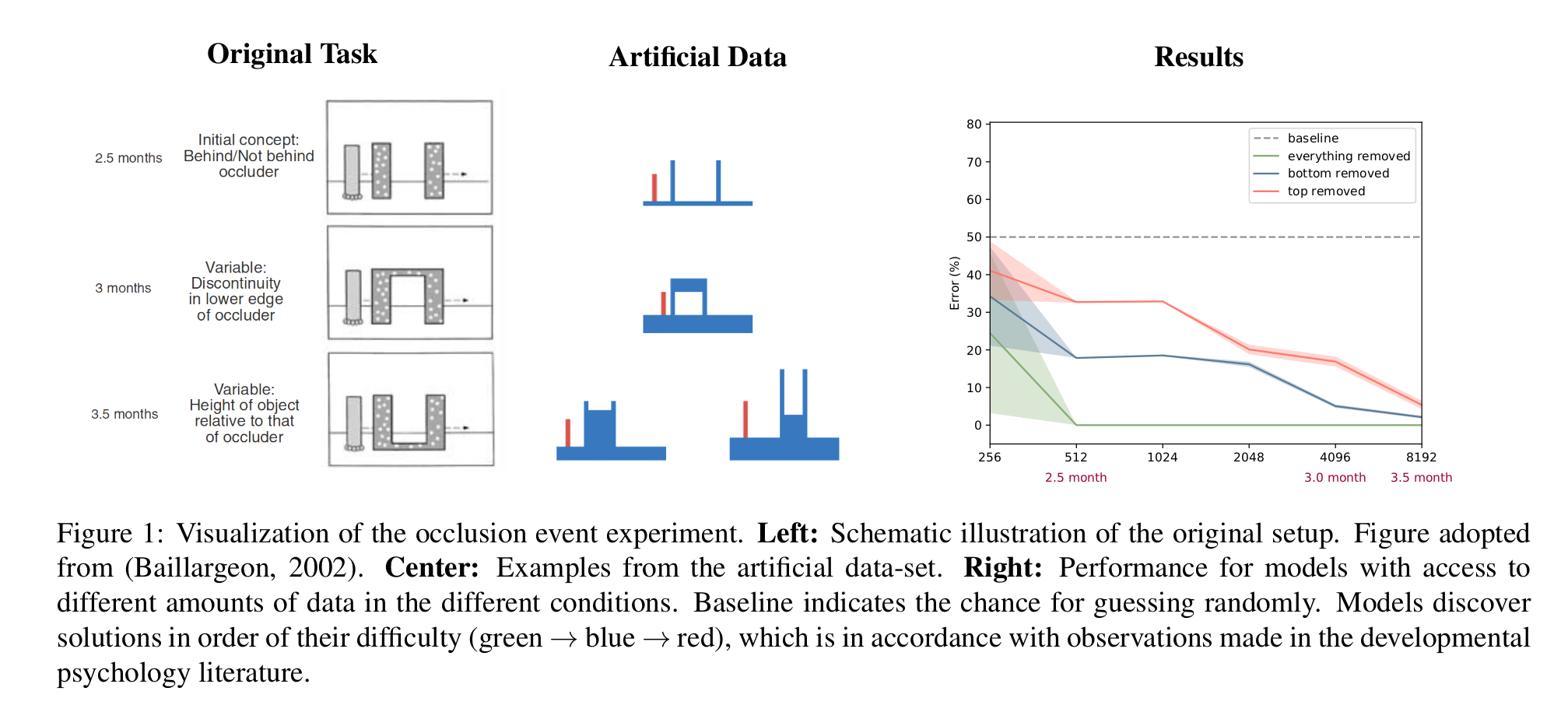Emulating Human Developmental Stages with Bayesian Neural Networks
We compare the acquisition of knowledge in humans and machines. Research from the field of developmental psychology indicates, that human-employed hypothesis are initially guided by simple rules, before evolving into more complex theories. This observation is shared across many tasks and domains. We investigate whether stages of development in artificial learning systems are based on the same characteristics. We operationalize developmental stages as the size of the data-set, on which the artificial system is trained. For our analysis we look at the developmental progress of Bayesian Neural Networks on three different data-sets, including occlusion, support and quantity comparison tasks. We compare the results with prior research from developmental psychology and find agreement between the family of optimized models and pattern of development observed in infants and children on all three tasks, indicating common principles for the acquisition of knowledge.
PDF Abstract
